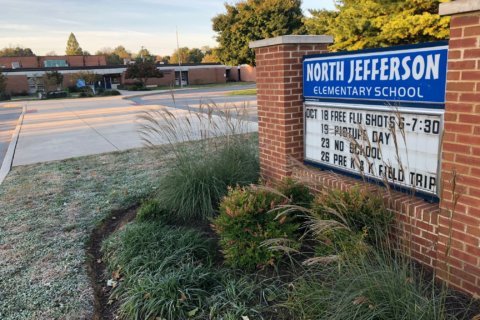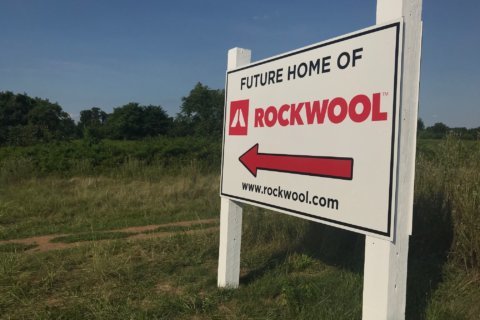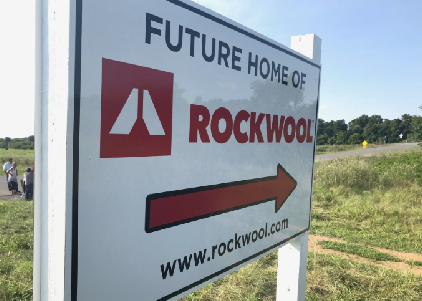WASHINGTON — The Rockwool company will install air monitors before spring 2019 at the elementary school that sits across Route 9 from where the 24-hour insulation factory is being built, in Jefferson County, West Virginia.
Parents of students at North Jefferson Elementary School, and the board of education have expressed concern that emissions from the plant’s stacks will harm neighbors, especially children sitting in school for hours daily.
The Denmark-based company has repeatedly assured opponents of the factory that the projected emissions are far below federal and state air pollution limits, and will have no effect on health or the environment.
Rockwool Vice President Michael Zarin said the company is getting closer to installing air monitoring units at the school, and at least one other still-to-be-determined location in the country.
“Our goal is to install the monitors no later than spring 2019 to ensure at least a full year of data prior to start of production,” in spring 2020, Zarin told WTOP.
By testing air quality before the plant begins operations, the company, neighbors, and environmental agencies will get a baseline for comparison.
In its factories, Rockwool melts basalt rock into molten lava, which is spun into fibers used in the manufacturing of rock wool insulation.
Shortly after public outcry began in summer 2018 about the factory’s groundbreaking, Rockwool President Trent Ogilvie said air monitoring was “a good suggestion” for soothing concerns about the emissions.
Zarin said the company is doing “a thorough, scientifically-based approach to determine where the monitors should be placed,” based on air modeling, other emission sources, and EPA guidelines.
After determining what monitoring locations would provide the most useful data, “we will discuss options with relevant community stakeholders, including property owners to secure land-use,” he said.
The West Virginia factory, technically located in Ranson, will be the company’s second U.S. rock wool factory — the other is in Byhalia, Mississippi.
Zarin said the company installed air monitors in Croatia 10 years ago, “for much the same reason as we’re committed to do so in Ranson, that being to address uncertainties in the community.”
“In our experience, there are no markets or jurisdictions that require installing air monitors, and it is a rather atypical step to take for relatively small facilities like ours,” he said.
Zarin said it is unclear how many monitors will be located in Jefferson County: “We’re trying to let the science dictate that.”








